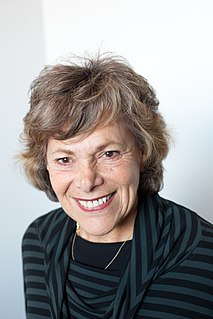A Quote by Aldous Huxley
Literary or scientific, liberal or specialist, all our education is predominantly verbal and therefore fails to accomplish what it is supposed to do. Instead of transforming children into fully developed adults, it turns out students of the natural sciences who are completely unaware of Nature as the primary fact of experience, it inflicts upon the world students of the humanities who know nothing of humanity, their own or anyone else's.
Quote Topics
Accomplish
Adults
Anyone
Anyone Else
Children
Developed
Education
Else
Experience
Fact
Fails
Fully
Humanities
Humanity
Instead
Know
Liberal
Literary
Natural
Natural Science
Natural Sciences
Nature
Nothing
Our
Out
Own
Primary
Sciences
Scientific
Specialist
Students
Supposed
Therefore
Transforming
Turns
Unaware
Verbal
World
Related Quotes
The academic bias against subjectivity not only forces our students to write poorly ("It is believed...," instead of, "I believe..."), it deforms their thinking about themselves and their world. In a single stroke, we delude our students into believing that bad prose turns opinions into facts and we alienate them from their own inner lives.
For some students, especially in the sciences, the knowledge gained in college may be directly relevant to graduate study. For almost all students, a liberal arts education works in subtle ways to create a web of knowledge that will illumine problems and enlighten judgment on innumerable occasions in later life.
Public education for some time has been heavily focused on what curricula we believe will be helpful to students. Life-Enriching Education is based on the premise that the relationship between teachers and students, the relationships of students with one another, and the relationships of students to what they are learning are equally important in preparing students for the future.
Eighty-three percent of our students are Pell Grant-eligible, which means, by and large, that their families have a dysfunctional relationship with wealth and with work. So if you have never been in an environment where you have come to understand the expectations of a career, because all you have ever seen is people be underemployed or unemployed, then how are you going to learn that? Our students are getting two forms of education. They're getting a rigorous liberal arts training, and they're also getting real world work experience.
[E]volutionists sometimes take as haughty an attitude toward the next level up the conventional ladder of disciplines: the human sciences. They decry the supposed atheoretical particularism of their anthropological colleagues and argue that all would be well if only the students of humanity regarded their subject as yet another animal and therefore yielded explanatory control to evolutionary biologists.
Everything is humanities. The sciences are a form of the humanities. They involve traditions of inquiry; they involve social engagement with ideas. They do not happen with a naked brain going out and encountering a nonhuman world. And the better we understand ourselves, the better we can do science, as well. So I don't see them - the sciences and the humanities - as being at all different.
If we respect students abilities to define their own experiences, to generate their own hypotheses, and to discover new ways of categorizing the world, we might not be so quick to evaluate the adequacy of their answers. We might, instead, begin listening to their questions. Out of the questions of students come some of the most creative ideas and discoveries.
The idea that the majority of students attend a university for an education independent of the degree and grades is a hypocrisy everyone is happier not to expose. Occasionally some students do arrive for an education but rote and mechanical nature of the institution soon converts them to a less idealic attitude






































